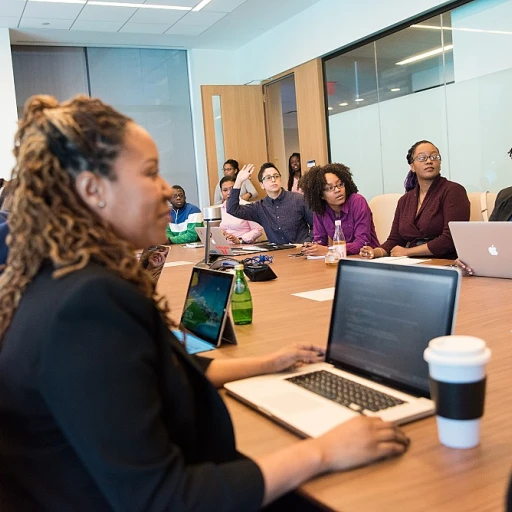
Understanding Leadership in HR
Grasping the Essence of Leadership in HR
Understanding leadership within the realm of Human Resources is crucial for anyone aspiring to become a Chief Human Resources Officer (CHRO). The role of a CHRO is not just about managing people; it’s about embodying the qualities that define effective leadership. This involves a deep comprehension of how leadership skills and qualities can influence and shape the work environment.
Leadership in HR is about more than just being a good leader. It’s about being an effective leader who can inspire and motivate team members. This requires a blend of leadership qualities that include communication, decision-making, and the ability to foster a collaborative work environment. These are not just words on a resume; they are the adjectives that describe the essence of a great leader.
For example, effective leaders in HR possess the ability to navigate challenges with strategic decision-making and problem-solving skills. They understand that leadership is not a static quality but a dynamic set of skills that require continuous development. This is why continuous learning and development are integral to maintaining effective leadership in HR.
To delve deeper into mastering these skills, consider exploring resources that focus on project management skills for CHROs. These skills are essential for leading teams effectively and ensuring that the HR department aligns with the broader organizational goals. Mastering project management skills for CHROs can provide valuable insights into enhancing your leadership capabilities.
Key Leadership Traits for CHROs
Leadership in the realm of human resources is more than just guiding a team—it's embodying a set of leadership qualities that foster an inclusive and productive work environment. CHROs are expected to exhibit multiple qualities that effective leaders possess which directly contribute to the overall success of an organization.
Exemplifying Vision and Strategy
CHROs, as effective leaders, need to demonstrate a clear vision for the HR department. This involves strategic planning and execution, enabling them to align HR objectives with broader business goals. The ability to adapt strategic decision-making processes, like those discussed in the strategic decision-making for CHROs blog, is crucial for managing challenges that arise.
Emotional Intelligence
A good leader within HR must possess high emotional intelligence. This trait allows leaders to empathize with team members, creating a supportive and understanding atmosphere. Emotional intelligence aids in addressing conflict and nurturing an environment where good communication and trust thrive.
Decision-Making Skills
Effective decision-making is a vital skill for CHROs, as they often deal with complex workforce challenges. Great leaders are decisive, utilizing both analytical and intuitive approaches to solve problems effectively. They weigh options carefully and consider the long-term impact of their decisions on team members and organizational objectives.
Inspirational Leadership
Words that describe effective leadership often include terms like motivational and inspirational. CHROs should inspire others through their actions and words, setting a standard for others to aspire to. This not only motivates the HR team but also serves as a model for the entire company.
CHROs are tasked with maintaining leadership skills that can drive change and promote growth within an organization. By embodying these qualities good leaders share, they serve not only as administrators but as visionary leaders who cultivate an impeccable work culture.
Communication: The Cornerstone of HR Leadership
The Essence of Clear Communication in HR Leadership
In the domain of Human Resources, perhaps no skill is more pivotal than communication. Effective leaders understand that communication is the cornerstone of any team or organization, especially in addressing the unique challenges presented in human resources. It's the ability to convey ideas clearly, listen actively, and build rapport with team members that set great leaders apart. The qualities that embody effective communication are often seen in the words that leaders choose to use. These words describe their intent, articulate their vision, and foster a work environment where team members are engaged and motivated. A good leader possesses the skills to not only communicate their expectations but also to inspire action through positive and motivating words. Clear communication is not just about talking or writing but involves a comprehensive skill set that includes:- Active Listening: One of the adjectives that describe effective leadership is the ability to truly listen. Good leaders make sure they comprehend what team members are expressing before responding.
- Empathy: Understanding and sharing the feelings of others enable leaders to connect on a human level, which is crucial for building a collaborative HR environment.
- Persuasion and Negotiation: Effective leaders possess the skill to sway decisions in the favor of what's best for the team and organization. This involves negotiation skills that enable a harmonious work environment.
Decision-Making in Human Resources
Judgment Skills in HR
Decision-making is pivotal for anyone in a leadership role, especially for a Chief Human Resources Officer. Effective leaders must possess an innate ability to weigh various factors, assess risks, and ultimately make choices that drive the organization towards its goals. Leadership adjectives such as "decisive," "analytical," and "intuitive" often describe individuals who can navigate complex challenges with confidence and foresight. In the dynamic environment of human resources, good leaders are known for their problem-solving skills. These qualities allow them to address immediate issues while also planning for long-term strategies. For example, a CHRO might need to evaluate whether a new policy aligns with the company's values and culture or how a shift in team structure could impact overall morale and performance. Good leaders also understand the importance of involving team members in decision-making processes. Engaging with the team not only enhances decision accuracy but also fosters a more collaborative work environment. Leaders who display qualities such as "inclusive," "thoughtful," and "supportive" on their resume stand out as they empower their team and encourage shared ownership of outcomes. Effective leadership in HR also implies being adaptable. The ability to pivot quickly when faced with new information or shifting circumstances is crucial. Words that capture these qualities include "flexible," "responsive," and "agile." These leadership skills ensure that a CHRO can handle the unpredictability of human resources with grace and authority. In summary, effective leaders in the HR domain are characterized by their strong judgment skills. They make well-informed decisions, engage their team in the process, and adapt to evolving challenges, thereby fostering a resilient and proactive HR environment.Building a Collaborative HR Environment
Fostering a Culture of Collaboration
In the realm of human resources, building a collaborative environment is essential for effective leadership. A good leader understands that the success of a team hinges on the ability to work together seamlessly. This involves creating a work environment where team members feel valued and empowered to contribute their ideas and skills.
Effective leaders possess the qualities that encourage open communication and trust among team members. By using leadership words and adjectives that inspire and motivate, leaders can describe their vision in a way that resonates with everyone involved. This not only enhances team cohesion but also fosters a sense of belonging and purpose.
Encouraging Open Communication
Communication is a cornerstone of any successful team. Leaders must ensure that there are open channels for dialogue, allowing team members to express their thoughts and concerns freely. This openness is crucial for problem solving and decision making, as it enables the team to address challenges collectively and find effective solutions.
By demonstrating good communication skills, leaders can create an atmosphere where team members feel comfortable sharing their ideas. This collaborative approach not only enhances the decision-making process but also leads to more innovative and effective outcomes.
Promoting Team Development
Continuous learning and development are vital for maintaining a dynamic and effective team. Leaders should prioritize the growth of their team members by providing opportunities for professional development and skill enhancement. This investment in development not only improves individual performance but also strengthens the team as a whole.
Great leaders understand that their role is not just to lead but also to nurture the potential of their team. By focusing on development, leaders can ensure that their team remains adaptable and resilient in the face of challenges.













